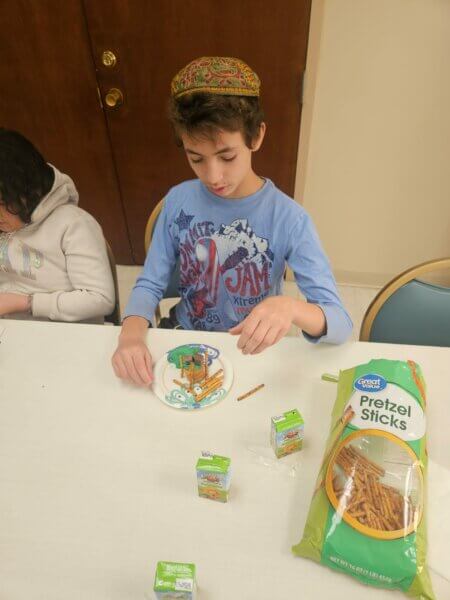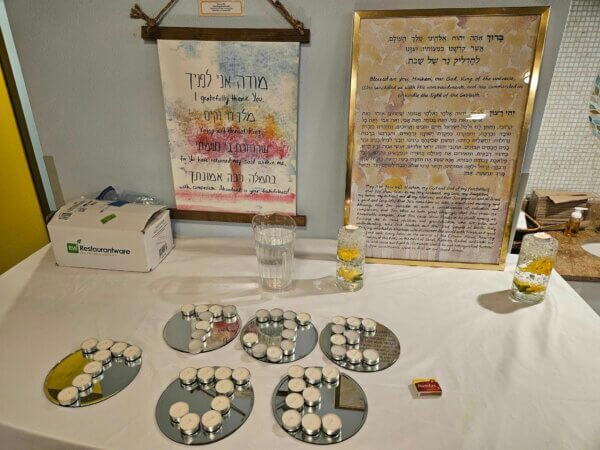Yom Kippur 5778
By Ellyn Hutt
Mister Rogers is not usually my source for Torah inspiration, but today I learned that when he was young and became distressed by various calamities happening in the world, his mother would tell him to “look for the helpers” and he would see how many good people always come and extend themselves with acts of great kindness in times of need.
The recent catastrophic hurricanes and earthquakes which have devastated so many communities have left people shaken by the extent of the unprecedented destruction. Whether or not we live in the places directly affected, many have friends and family members who have suffered, and we all are impacted by the reports we have seen and heard. What is our response? In addition to our own contributions of money and supplies and time to help alleviate some of the practical and emotional difficulties, the advice Mister Roger’s mother gave him is the best: “look for the helpers” and see the outpouring of compassion and kindness people are demonstrating.
Yom Kippur is almost here. The first Yom Kippur the Jewish people experienced occurred while they were in the desert. Following the sin of the Golden Calf, Moshe returned to Mount Sinai to gain Hashem’s forgiveness for their sin. In addition, Moshe received the second set of tablets (Moshe shattered the first set upon witnessing the revelry that accompanied the people’s betrayal). Perhaps the biggest gift the Jewish people received, however, was Hashem’s revelation of His 13 Attributes of Mercy: “Hashem, Hashem, G-d, Compassionate and Gracious, Slow to anger, and Abundant in Kindness and Truth. Preserver of kindnesses for thousands of generations, Forgiver of Iniquity, willful sin, and error, and Who cleanses.”
“Rabbi Yochanan said: … He (Hashem) said to him (Moshe): Whenever Israel sins, let them carry out this service (the 13 Attributes of Mercy) before Me, and I will forgive them.” (Rosh Hashana 17b) Our Yom Kippur liturgy, modeled on that first Yom Kippur, repeats these Attributes throughout the day. However, there’s more to the process than just saying the words. According to Rabbi Yochanan, Hashem said we are to ‘carry out this service’ which conveys the idea that we’re supposed to do something. We are directed to activate these attributes of mercy in ourselves, which will trigger Hashem’s response of forgiveness. Each of the attributes is worthy of in-depth study to fully understand it, but we can focus on two that are related and particularly relevant at this time.
We notice that kindness is mentioned twice in the list. First it says that Hashem is abundant in kindness, which is a statement about the quality, quantity, and consistency of the kindnesses that Hashem does for us. The message in this statement is clear. In order to imitate Hashem, we need to do acts of kindness in the same way – acts that are thoughtful, appropriate, frequent, and consistent. However, kindness is mentioned again when Hashem says that He is a “Preserver of kindnesses for thousands of generations.” What does that add? Here we are learning that Hashem collects and treasures all the acts of kindness that we do and He preserves them for thousands of generations. Our acts of kindness – big and small — are precious to Hashem. The impact of our actions ripples throughout Creation in ways we can’t fathom. Who knows how a small act of kindness that was done years ago in a distant place has blossomed and is benefitting us here and now? If Hashem didn’t tell us this, we wouldn’t believe that our actions could be so significant. Imitating Hashem in this attribute requires us to be a preserver of kindnesses as well. We need to recognize, appreciate, and remember the big and small kindnesses that others constantly do for us and for those whom we love.
Perhaps the recent disasters we’ve witnessed and experienced, specifically at the High Holiday season, have given huge numbers of people abundant opportunities to activate the attribute and merit of kindness in the world at a time when it was sorely needed. And with all of the technology that allows us to see exactly what is happening at every moment, we can also activate the merit of being a preserver of kindnesses by following Mister Roger’s mother’s advice to look for, see, and appreciate the helpers.
May Hashem grant all of us atonement for our mistakes and see all of our helpful and worthy deeds and acts of kindness as an expression of the love and devotion that defines our true essence.


